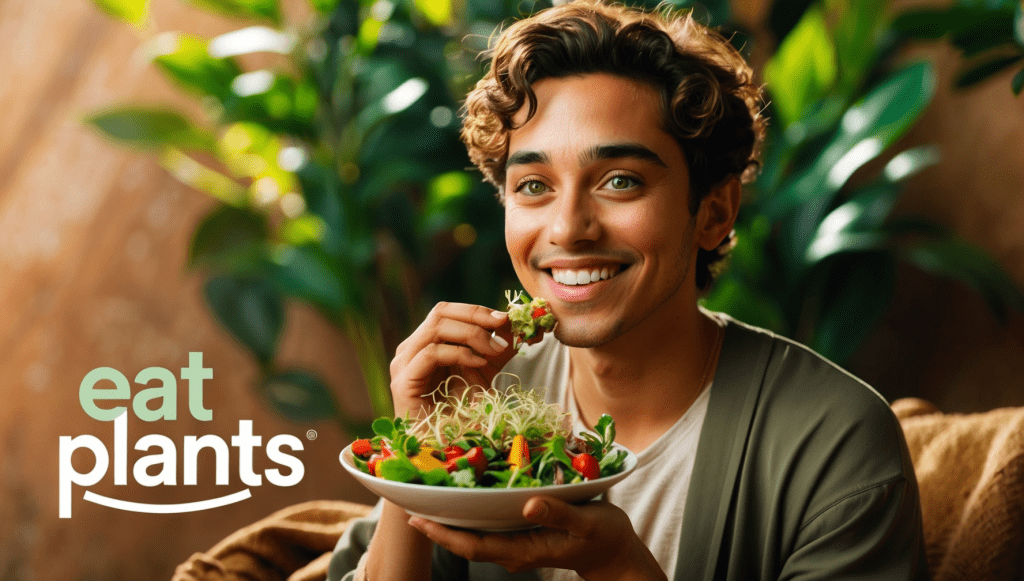The question of whether you would ever just eat plants invites a deeper exploration into the values and benefits associated with a plant-based diet. As more people become aware of the health, ethical, and environmental implications of their food choices, many are considering the advantages of adopting a vegetarian or vegan lifestyle. Here are the top ten reasons why embracing a plant-based diet can be a transformative decision.
1. Improved Health Outcomes
A plant-based diet is linked to numerous health benefits, including lower risks of chronic diseases such as heart disease, diabetes, and certain cancers. Studies have shown that individuals who consume more fruits and vegetables tend to have better overall health and longevity. By focusing on whole, plant-based foods, you can improve your nutrient intake while reducing harmful substances found in processed foods and animal products.
2. Rich in Nutrients
Plants are packed with essential vitamins, minerals, and antioxidants that support overall health. Fruits and vegetables are rich in vitamins A, C, E, and K, as well as important minerals like potassium and magnesium. These nutrients play crucial roles in maintaining bodily functions and preventing deficiencies.
3. High in Fiber
Plant-based foods are typically high in dietary fiber, which is essential for digestive health. Fiber helps regulate bowel movements, lowers cholesterol levels, and can aid in weight management by promoting a feeling of fullness. Including more fruits, vegetables, whole grains, and legumes in your diet ensures you get the fiber your body needs.
4. Weight Management
Adopting a plant-based diet can be an effective strategy for weight management. Plant foods are generally lower in calories and higher in volume compared to animal products, allowing you to eat satisfying portions without excessive calorie intake. This makes it easier to maintain a healthy weight or lose weight if desired.
5. Ethical Considerations
Many people choose to eat plants out of concern for animal welfare. A plant-based diet eliminates the need for animal farming, which often involves practices that raise ethical concerns regarding animal treatment. By choosing to eat plants, you align your dietary choices with your values regarding compassion for animals.
6. Environmental Sustainability
The environmental impact of animal agriculture is significant, contributing to greenhouse gas emissions, deforestation, and water depletion. By reducing or eliminating animal products from your diet, you can lower your carbon footprint and contribute to a more sustainable food system. Plant-based diets require fewer natural resources and have been shown to have a smaller environmental impact.
7. Variety of Flavors and Textures
Eating plants opens up a world of culinary possibilities. With countless fruits, vegetables, grains, legumes, nuts, and seeds available, there’s no shortage of flavors and textures to explore. From savory dishes to sweet treats, a plant-based diet allows for creativity in the kitchen while introducing you to new ingredients.
8. Convenience
Fruits and vegetables are often convenient snacks that require little preparation—perfect for busy lifestyles. Whether it’s grabbing an apple on the go or tossing together a quick salad, plant-based foods can easily fit into your daily routine without the need for extensive cooking or meal prep.
9. Enhanced Mood and Energy Levels
Many individuals report feeling more energetic and having improved moods after adopting a plant-based diet. The nutrient-dense nature of plant foods can lead to better overall health and vitality. Additionally, avoiding heavy animal products can help prevent sluggishness often associated with high-fat meals.
10. Community and Support
Embracing a plant-based lifestyle often connects individuals with like-minded communities that share similar values regarding health, ethics, and sustainability. This sense of community can provide support through shared experiences, recipes, and encouragement on your journey toward healthier eating habits.

The decision to eat plants is not just about food; it’s about aligning your dietary choices with your values regarding health, ethics, and sustainability. Whether you choose to become fully vegan or simply incorporate more plant-based meals into your diet, the benefits are numerous and impactful. Exploring the world of plants may open up new horizons for your palate while contributing positively to your health and the environment. As you consider this journey toward plant-based eating, remember that every small change can lead to significant benefits for yourself and the planet!
The Difficulties of a Vegan Diet: Challenges and Solutions
Adopting a vegan diet can be a fulfilling and health-conscious decision, but it also comes with its own set of challenges. From nutritional concerns to social situations, transitioning to a plant-based lifestyle requires careful planning and consideration. Here, we explore the common difficulties faced by those considering or following a vegan diet, along with practical solutions to overcome these hurdles. A well-crafted vegan cookbook can be an invaluable resource in this journey.
1. Nutritional Deficiencies
Challenge: One of the most significant concerns for vegans is the risk of nutritional deficiencies, particularly in vitamins and minerals that are predominantly found in animal products, such as vitamin B12, iron, calcium, and omega-3 fatty acids.Solution: To combat this challenge, it’s essential to focus on a varied diet rich in whole foods. A vegan cookbook can provide recipes that incorporate fortified foods (like plant-based milks and cereals) and highlight nutrient-dense ingredients such as leafy greens, legumes, nuts, seeds, and whole grains. Additionally, consider taking supplements for nutrients like vitamin B12 to ensure adequate intake.
2. Meal Planning and Preparation
Challenge: Transitioning to a vegan diet often requires more meal planning and preparation than traditional diets. This can be time-consuming and overwhelming for beginners.Solution: A good vegan cookbook not only offers a variety of recipes but often includes meal plans and shopping lists that simplify the process. By following these guides, you can streamline your meal prep and ensure you have nutritious options readily available throughout the week.
3. Cravings for Animal Products
Challenge: Many individuals experience cravings for familiar animal products, especially during the initial transition period.Solution: Vegan cookbooks frequently provide delicious plant-based alternatives to popular animal-based dishes. By recreating your favorite meals with vegan ingredients—such as using cashew cheese instead of dairy cheese or lentils instead of ground meat—you can satisfy cravings while staying true to your dietary choices.
4. Limited Options When Dining Out
Challenge: Eating out can pose challenges for vegans, as many restaurants may have limited plant-based options or may not clearly indicate which dishes are vegan-friendly.Solution: Before dining out, research restaurant menus online to identify vegan options. Many cookbooks also offer tips on how to communicate dietary preferences effectively when ordering. Additionally, consider bringing your own dish to share at gatherings or suggesting restaurants known for their vegan offerings.
5. Social Situations
Challenge: Social events or family gatherings can be tricky for vegans, especially if others are unfamiliar with plant-based diets or resistant to accommodating dietary preferences.Solution: A well-rounded vegan cookbook can provide you with crowd-pleasing recipes that are sure to impress others at social gatherings. Offering to bring a dish that showcases the deliciousness of plant-based eating can help bridge the gap between your dietary choices and those of your friends and family.
6. Finding Time for Cooking
Challenge: Busy lifestyles may make it difficult to find time for cooking from scratch every day.Solution: Look for cookbooks that focus on quick and easy recipes or batch cooking strategies. Many vegan cookbooks include meals that can be prepared in 30 minutes or less or provide tips for meal prepping on weekends so you have healthy options available throughout the week.
7. Understanding Food Labels
Challenge: Navigating food labels can be confusing when trying to identify which products are truly vegan-friendly.Solution: Familiarize yourself with common animal-derived ingredients and their alternatives by consulting resources provided in vegan cookbooks or online guides. Many cookbooks also include tips on how to read labels effectively, making it easier to make informed choices when shopping.
8. Balancing Macronutrients
Challenge: Ensuring an appropriate balance of carbohydrates, proteins, and fats can be challenging on a vegan diet, particularly if one is unfamiliar with plant-based sources of these macronutrients.Solution: A comprehensive vegan cookbook will often include nutritional information for each recipe, helping you understand how to achieve a balanced diet. Look for recipes that combine different food groups—such as grains with legumes—to ensure you’re getting all essential amino acids.
9. Overcoming Misconceptions
Challenge: Many people hold misconceptions about vegan diets being bland or lacking variety.Solution: A diverse range of recipes in a vegan cookbook can dispel this myth by showcasing the exciting flavors and textures available through plant-based cooking. By experimenting with global cuisines that emphasize vegetables and grains—like Indian, Thai, or Mediterranean—you’ll discover just how vibrant plant-based meals can be.
10. Maintaining Motivation
Challenge: Staying committed to a vegan lifestyle can be difficult over time due to societal pressures or personal challenges.Solution: Engaging with the community through online forums or local groups focused on plant-based living can provide support and inspiration. Additionally, regularly trying new recipes from your vegan cookbook can reignite excitement about cooking and eating plants.
While adopting a vegan diet presents various challenges—from nutritional concerns to social situations—many of these obstacles can be effectively managed with careful planning and resources like a well-crafted vegan cookbook. By focusing on varied nutrition, meal preparation strategies, and delicious recipes that satisfy cravings while promoting health benefits, you can navigate the transition toward a fulfilling plant-based lifestyle successfully. Embracing this journey not only enhances your culinary skills but also aligns your eating habits with your values regarding health, ethics, and sustainability!
Share
Rewrite












